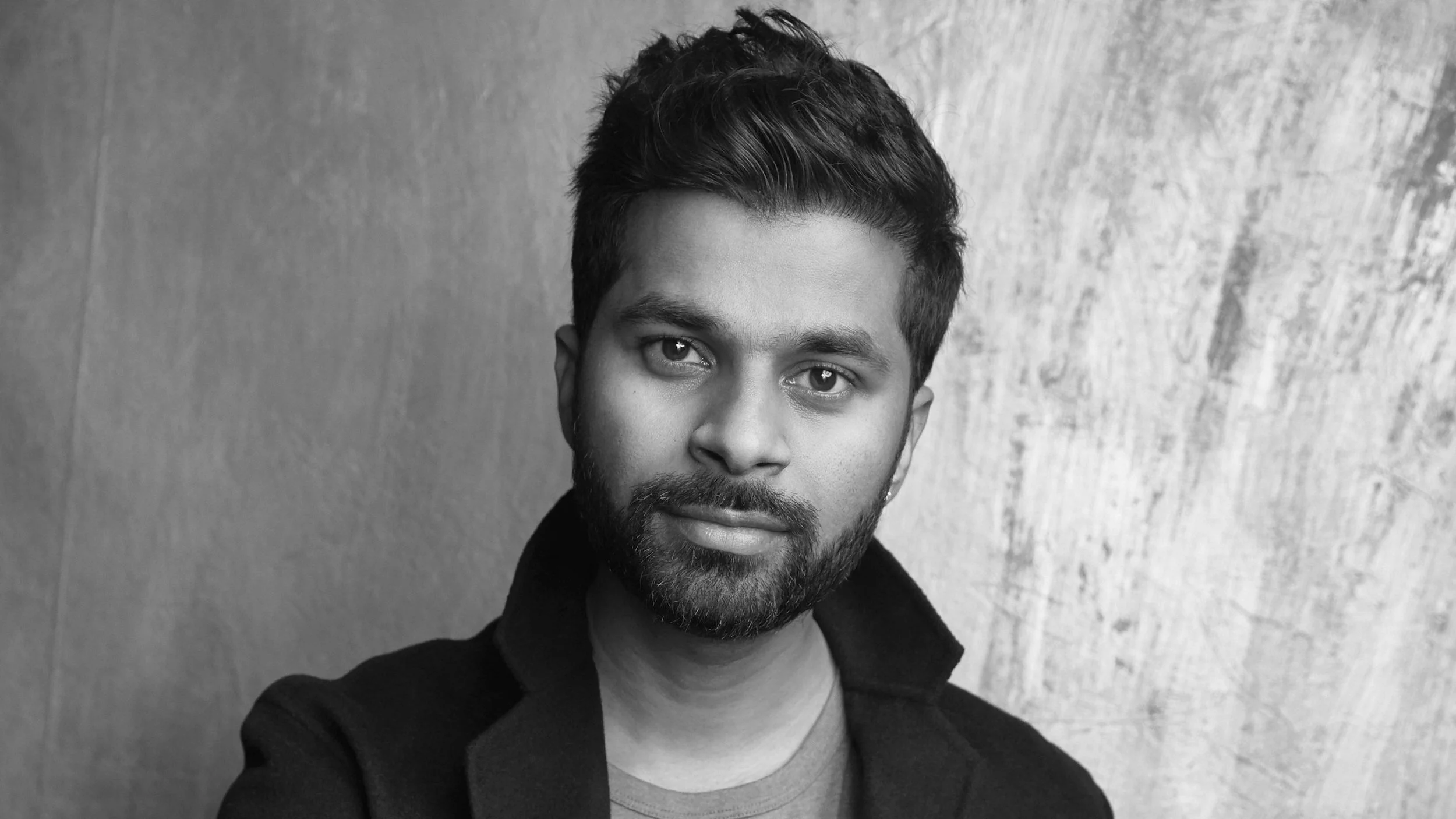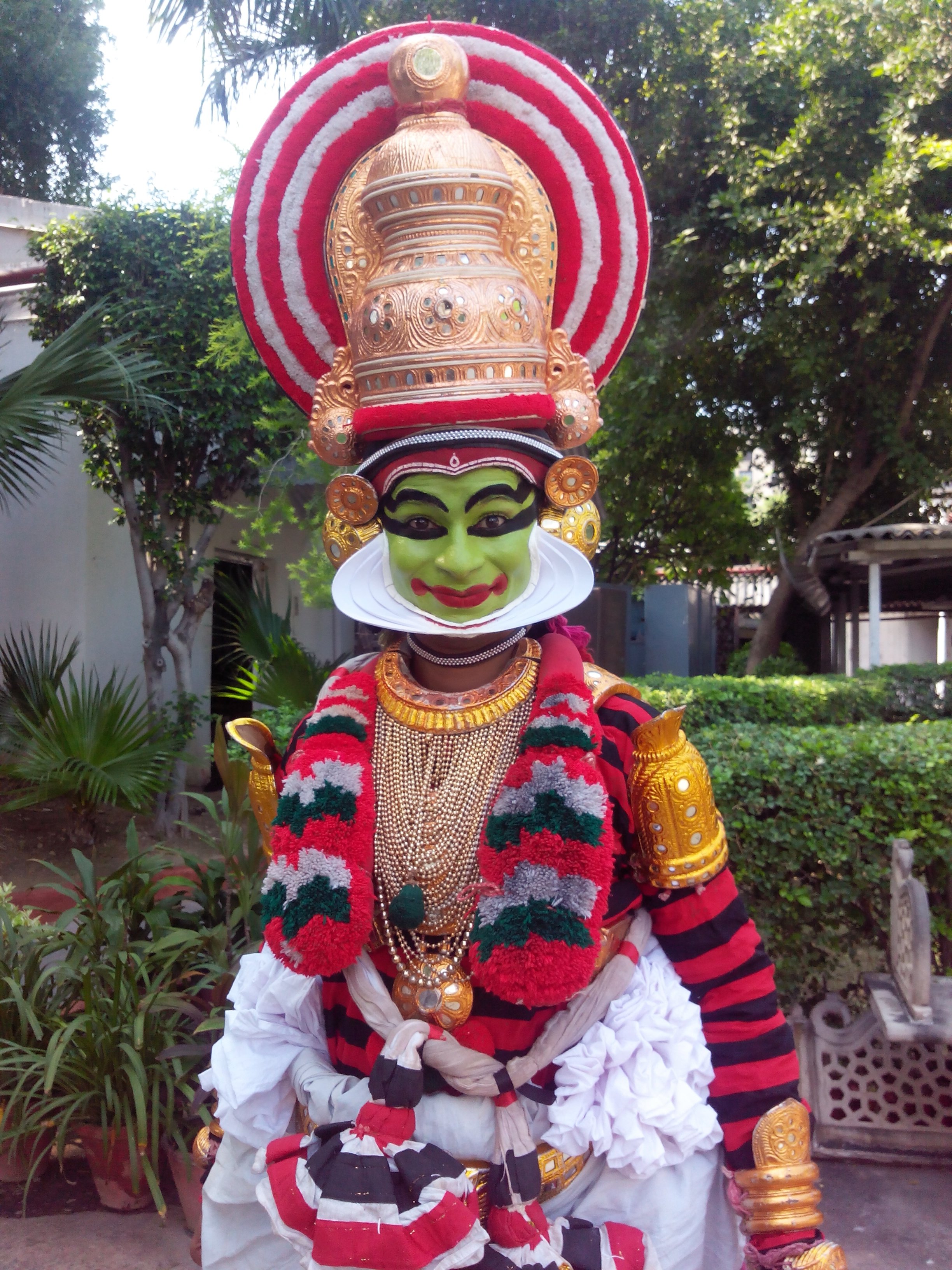Alumni Update: Ramanjaneyulu Doosari
Ramanjaneyulu Doosari is a 2017 scholar who pursued an MFA in Actor Training and Coaching at the Royal Central School of Speech and Drama (University of London). He is currently a Specialist Acting Tutor at the Sharjah Performing Arts Academy, UAE.
In a recent interview with Raman, he shared with us the rigour and commitment needed to be an actor and a specialist actor trainer.
Where did your journey into theatre begin?
I grew up watching regional art forms of Telangana, especially Chindu Bhagavatam, Kuchipudi, Oggu Katha, Perini Sivatandavam, Kolatam, Burra Katha, and other such ritual performances. They are the stories of the past, told delicately, expressively, using satire, dance, songs and lengthy performances. My first theatre memory was watching an excellent overnight Veedhi Bhagavatam performance in my village. It inspired me to begin my training in martial arts at the age of ten. It also led me to achieve a Black Belt in Kung-fu.
During my college days, I was very active in the National Cadet Corps (NCC) and National Service Scheme. My attraction to cultural festivals, folk songs, and events involving theatre won over my interest in the NCC. However, despite my love for theatre I pursued my B.Sc. in Biology, since we do not have an undergraduate degree in theatre in Telangana.
Performing in the play Antigone
After my undergraduate degree, I pursued a Master of Performing Arts studied Theatre at the Hyderabad Central University (HCU) where I receive formal training in acting. During the three-year course period, I was fortunate to have stimulating and encouraging faculty. My dedication and passion for theatre and acting were awarded a gold medal at the end of my master’s degree. It is here that I realized the importance of receiving professional training in acting. After HCU, I was awarded Young Artist Fellowship from the Ministry of Culture, Government of India.
Following this, I was accepted into a master’s programme at the National School of Drama (NSD) in New Delhi where I continued my journey with a three-year course in acting. I feel this is where I set my acting foundation and pushed myself to deepen my understanding of contemporary dance, modern, folk, and traditional Indian Theatre. The course at NSD is an intense theatre training programme that offered me numerous opportunities to explore the theoretical and practical aspects of theatre-making and the art and craft of acting. I worked with many national and international theatre personalities during these years.
During my time at NSD, I participated in UNESCO’s Asian Traditional Theatre Workshop, which explored Chinese Peaking Opera, Japanese Kabuki Theatre, Indian Sanskrit Drama and Korean Changguek in Beijing, China. These encounters with the ancient traditional arts equipped me with sharper senses and more profound respect for conventional wisdom and theatre as an art form. It enriched me as an actor.
What motivates you?
Solo Performance entitled Empty Your Mind
Art can be shared and understood in many ways; it has the ability to speak directly to one’s mind, heart and soul. Acting is not just a hobby; It’s a passion. I enjoyed doing much research on observing life, people, surrounding, nature and embodying different characters. Most importantly, I enjoyed sharing my passion.
After graduating from HCU, along with a few of my friends, I used to conduct workshops for the children of the construction labourers who lived on the university campus. We gathered the children as per our schedule and would teach them modules that we created for them. Leading them was an absolute joy.
Is that where you discovered your love for teaching?
Yes, I shared with children during workshops what I learned in the theatre classes at Hyderabad Central University (HCU). I taught at various theatre schools and led the workshops with various theatre groups in Hyderabad. After graduating, I returned to HCU as visiting faculty. My training as an actor/performer initiated the teaching process and helped me take a steps along that path. I believe it can be beneficial to spend time training raw talent because it is a great way to improve and keep learning new techniques. I was qualified by the University Grant Commission – National Eligibility Test (UGC-NET) to teach as an assistant professor.
Is this how you came to be an assistant professor in the Department of Performing Arts at Lovely Professional University?
Performing in the play Fujiyama
It was a great opportunity which I received even before completing my course at NSD. Teaching acting gave me immense pleasure. I was trained as an actor, but teaching at university was entirely different and challenging. I was constantly looking to enhance my acting pedagogical skills, and therefore decided to take a course in actor training in the UK.
And this is when you decided to apply to Inlaks?
Yes. I was selected for Actor Training and Coaching (MFA) at Royal Central School of Speech and Drama, UK. However, being from middle-class family, the university fees and the cost of living in the UK was too high for me to bear on my own. So, I applied for the Inlaks scholarship. I am very thankful to Inlaks for awarding me a scholarship, it has changed my life. Without it several opportunities and experiences would have been out of my reach.
You attended a Master’s in Actor Training and Coaching from the Royal Central School of Speech and Drama in London; tell us a bit about that experience? How did your teaching style evolve and grow there?
Performing in Othello
At the Royal Central School of Speech and Drama in London, I was privileged to have some of the best master practitioners as my tutors. I was trained in acting practises like Stanislavski, Chekhov, Meyerhold, Bogart, Demidov, Lecoq, Grotowski and Meisner, movement, voice techniques and methodologies appropriate for acting on screen. I also trained in facilitation, interpersonal coaching and teaching as well as pedagogical skills. This included how to research, plan and deliver courses, individual and group presentation skills, and the ability to plan, conduct, and critically reflect on my practice as an acting practitioner.
Apart from these, I undertook my teaching assistant and workplace attachments at Rose Bruford College, Royal Central School of Speech and Drama and East15 Acting School. I later also had the opportunity to work as a visiting faculty at East 15 Acting School.
Apart from my studies, I saw over eighty-five performances in various venues ranging from Shakespeare Globe Theatre, National Theatre, Royal Opera House and London Coliseum, etc. during my time in London.
You are proficient in several traditional techniques as well.
Kudiyattam training
I have trained in several traditional theatre forms of India, including Kudiyattam, Ankyanat, Kathakali, Chindu Yakshaganam, Maach, Tai- chi, Kung-Fu (Black Belt), Karate (Brown-I Belt), Kalaripayattu, Fencing, Yoga and traditional forms of stick fighting and sword fighting. My process of acting stems from physical movement and exercise. I practice yoga to prepare myself before entering my character's psyche. I worked in forty-five significant productions as an actor and assistant director with national and international theatre directors. I have participated in several national and international theatre festivals with these plays like Bharat Rang Mahotsav (12th and 18th editions), Khojikode Theatre Festival, Kerala and Indian Theatre Schools Meet Karnataka, Camden Fringe Festival, UK.
Oh wow, that is incredible. Is there any particular teacher or technique that resonated with you? Either from UK or India?
I have had many practitioners influence my practice from the both West and India. Such as Anne Bogart, Mike Alfreds, Bella Merlin, Mel Churcher, Brigid Panet, John Gillet, Jack Price, Jessica Hartley, Ian Morgan, David Zinder, Andrei Malaev-Babel, Gretchen Egolf, to name a few Western practioners.
I was influenced as an actor and trainer in India by Anuradha Kapur, Khalid Tyabji, Abhilash Pillai, Tripurari Sharma, Guru G. Venu, Kapila Venu, Prof. Ananta Krishnan, Rajiv Velicheti, Sreejith Ramanan, Dr. N.J. Bhikshu, Dr. Satyabrata Rout, Noushad Mohammed. During the final year of NSD training, I was most inspired by prominent theatre practitioner and actor trainer Khalid Tyabjii's teaching and acting. His commitment, precision and dedication to art influenced me a lot. No matter how early I went to the classroom, he was always there, practising before his students arrived. Even after I moved to Punjab, I would make time to practice with him. I would take the train from Punjab to Delhi on Saturday night to spend a few hours with him on Sunday before heading back to Lovely University to teach my class on Monday. To me, he is a legend, an institution in himself.
Do you also go to class early as he did?
Haha, no, we have a short gap between sessions here. Nevertheless, there is still a lot to learn from him. I admire how he channels psychophysical acting training with his practice. He uses yoga asanas as essential vehicles for transformation in his acting training. We used to practice an hour of yoga every day in his class, and then we moved on to acting. Once our minds and bodies were ready, we would step into our character's realm or the source of inspiration. If the inspiration for the session was a tree, we could take on the characteristics of a tree, fully embody ourselves and be rooted to the ground. We would also explore the sound of wood burning and the transformation of our energy. What would it mean to go from wood to fire? The mind and body transmute entirely.
How do you carry these techniques and your tutors with you in your classroom?
Sharjah Performing Arts Academy, UAE
That is a good question. Over 226 practitioners have taught me many techniques and practices during my ten years of training. I bring a little bit of everyone who has made me the actor and trainer into the classroom. They have influenced me to create the syllabus for my classes at the Sharjah Performing Arts Academy (SPAA), where I now work. I now understand better which techniques are to be used and taught at different levels, like Laban, Lecoq, Chekhov technique and Stanislavski’s system.
Training students at Shri Shiva Kumar Ranaga Prayoga Shala, Karnataka
Before moving to SPAA, I conducted a workshop at Sri Shivakumara Ranga Prayoga Shale, Sanehalli Drama School in Karnataka, India. My time with the students there made me realise that the culture, socio-economic, political and even geographic sensibilities of an actor, play a considerable role in responding to acting techniques. I adopted western acting techniques for Indian students here. When the student realises the real purpose of the techniques it is an absolute joy. I also realised that coming from India and being trained in the UK gave me the unique ability to culturally adapt and mould my teaching techniques for Indian, Western and the MENA region students.
Are you working on any acting projects outside of the classroom?
I have been working on a three-person play called Blue/Orange. The play is about race and how a scientist and his assistant conduct experiments on a black man. It was meant to open last October, but we have had to halt rehearsals for a while.
I am lucky to have the freedom to practice my acting career alongside my teaching at SPAA. It is an excellent institute, as it gives me continuous insights into what students will experience when they work and get the chance to reflect on my acting practice. It also enables me to effectively review, reorganise, and evolve the acting curriculum.
What are your plans for the future?
I continue to train the new talent of students who can improve themselves as actors by learning all the different techniques. Along with teaching, I am hoping to continue acting and run a theatre of my own in the future.













